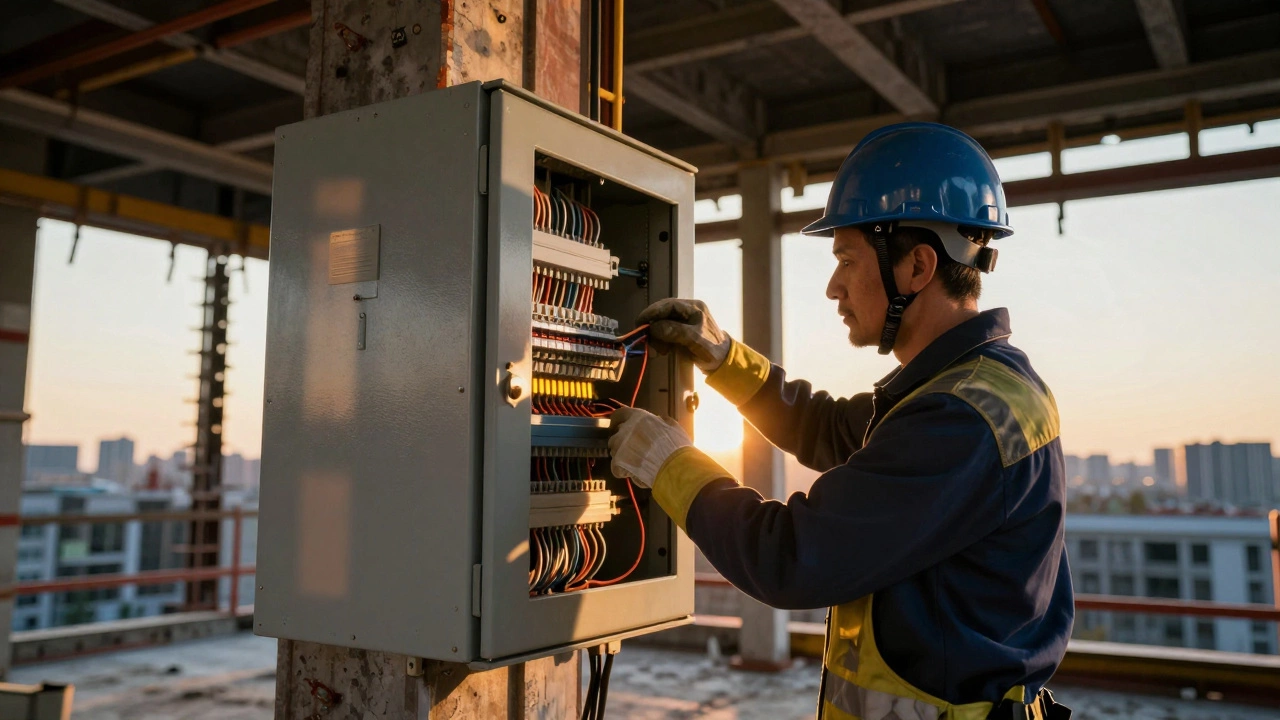Construction Jobs: What They Are and Why They Matter
If you’re looking for a hands‑on career that builds the world around you, construction jobs might be a perfect fit. From fixing a cracked wall to managing a multi‑million‑pound project, the industry offers a range of roles that suit different skills and interests. You don’t need a fancy degree to start; many positions value experience, certifications, and a willingness to learn on the job.
What makes construction work appealing is the variety. One day you could be laying a concrete slab, the next you might be reviewing blueprints with architects. This mix of physical work and problem‑solving keeps the day fresh and gives you a clear sense of accomplishment when a project is finished.
Common Roles in Construction
Here are some of the most popular jobs you’ll find on a building site:
- Laborer: Handles basic tasks like moving materials, cleaning sites, and assisting skilled tradespeople.
- Carpenter: Cuts, shapes, and installs wood structures, from framing to finish work.
- Electrician: Installs wiring, lighting, and electrical panels, ensuring everything meets safety codes.
- Plumber: Sets up water supply, drainage, and gas lines, often fixing leaks and pipe issues.
- Project Manager: Coordinates schedules, budgets, and crews, making sure the project stays on track.
- Site Supervisor: Oversees daily site activities, checks quality, and ensures safety compliance.
- Estimator: Calculates material and labor costs, helping clients understand project budgets.
Each role demands different training. Some positions, like laborer or carpenter, often start with an apprenticeship. Others, such as project manager, may require a construction management certificate or relevant experience.
How to Land a Construction Job
Getting your foot in the door is easier than you think. Start by identifying the role that matches your interests and physical abilities. If you like working with your hands, aim for a trade; if you enjoy planning and numbers, consider estimating or management.
Next, build a solid resume that highlights any hands‑on experience, certifications (like CSCS or NVQ), and safety training (OSHA or CSCS cards). Even volunteer work on community builds counts as valuable experience.
Network on the job site. Talk to foremen, ask about upcoming openings, and let them know you’re eager to learn. Many companies prefer hiring people who already know their crew and site culture.
Online job boards, local union halls, and construction agencies also list openings. Set up alerts for keywords like "construction laborer" or "carpenter apprenticeship" so you never miss a posting.
Finally, prepare for interviews by reviewing basic construction safety rules and common tools for the job you’re applying for. Employers love candidates who can speak the language of the site right away.
Whether you’re just starting out or looking to move up, construction jobs offer clear pathways for growth. With the right mix of skill, training, and attitude, you can build a rewarding career that literally shapes the world around you.



